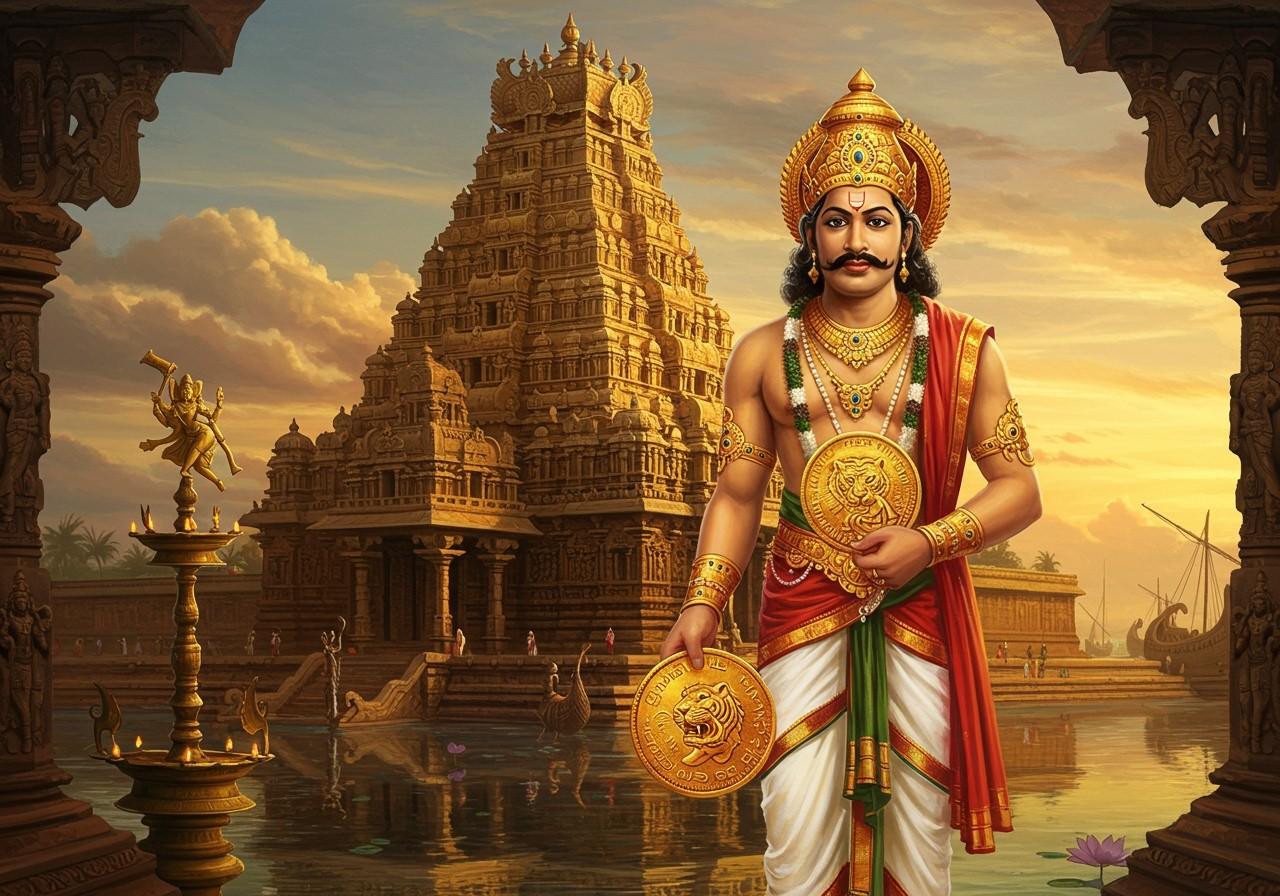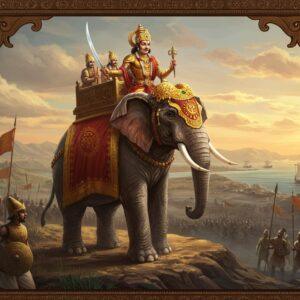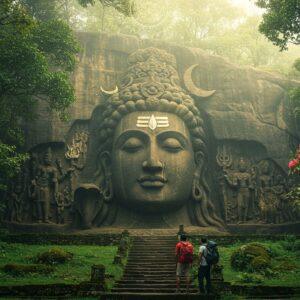
Rajendra Chola I, often called Rajendra the Great, a prominent Chola emperor, reigned from 1014 to 1044. He significantly expanded the Chola Empire, extending its reach north to the Ganges and across the ocean to coastal Burma, the Andaman and Nicobar Islands, Lakshadweep, and the Maldives. His reign is known for strategic brilliance, naval dominance, and administrative reforms, marking a golden era in South Indian history. A notable achievement was constructing a large artificial lake, one of the largest manmade lakes, at his capital, Gangaikondacholapuram.
Chola Temple Architecture
Rajendra Chola I’s reign marked the peak of Chola temple architecture. He commissioned magnificent temples, including the Brihadeeswarar Temple at Gangaikondacholapuram, a symbol of Chola grandeur and devotion. This temple complex wasn’t just a place of worship; it served as a hub of cultural activities, fostering the growth of art, literature, and social gatherings. The advanced water management systems, such as the Cholagangam lake, played a crucial role in sustaining both temple rituals and agricultural practices, demonstrating the Chola’s innovative approach to resource management. These architectural marvels also showcase the Chola’s influence on regional politics, with their architectural style influencing later South Indian temple designs.
- A massive vimana (tower): The towering vimana is a testament to the Chola’s architectural prowess, reaching towards the heavens and dominating the landscape, symbolizing the empire’s power and reach.
- Intricate carvings: The temple walls are adorned with intricate carvings depicting scenes from mythology, showcasing the skill of Chola artisans and their deep understanding of religious narratives. These carvings tell stories and provide a visual representation of the Chola’s cultural and spiritual beliefs.
- A colossal Nandi statue: The massive Nandi statue, a symbol of devotion to Lord Shiva, guards the entrance to the temple, its imposing size reflecting the reverence held for the deity and the grandeur of the Chola empire.
Coins of Rajendra Chola I
Rajendra Chola I’s coins reflect the economic prosperity of his vast empire. These coins, often depicting deities and royal symbols, served as propaganda tools, showcasing the emperor’s military victories and divine right to rule. The introduction of new coinage systems during his rule facilitated trade across his vast empire, extending from South India to Southeast Asia and the Middle East. The distribution of these coins reveals extensive trade networks, providing valuable insights into the socio-economic structure and monetary policies of the time. They also highlight the religious and cultural values prevalent during his reign.
Inscriptions as Historical Records
Inscriptions from Rajendra Chola I’s reign are invaluable historical records. Predominantly in Tamil, these inscriptions promoted Tamil culture and documented important events, showcasing Rajendra Chola’s strategic skills. They include royal edicts, temple grants, and land donations, offering insights into Chola administration, social hierarchy, and state-community relations. They record military campaigns and diplomatic relations, revealing the emperor’s political acumen and the empire’s interactions with neighboring kingdoms. The inscriptions also document religious support and temple endowments, reflecting the close relationship between religion and politics during that era. Deciphering these texts, while challenging, offers a unique window into the past.
Poojn.in: Connecting to Chola-Era Religious Traditions
Poojn.in, India’s leading cultural goods and services store, offers authentic puja items and religious artifacts that connect you to the rich spiritual heritage of the Chola period. We provide a wide range of products for those seeking to experience and preserve the traditions of this era.
For Temple Worship:
- Brass and Copper Lamps: Pure brass and copper lamps, reminiscent of those used in Chola temples, create a sacred ambiance for your worship space.
- Bell Metal Vessels: Traditional bell metal vessels for abhishekam rituals add authenticity to your ceremonies.
- Kumkum and Vibhuti Holders: Authentic kumkum and vibhuti holders made of brass preserve the sanctity of these sacred substances.
- Panchaloha Idols: Panchaloha idols of deities commonly worshipped during the Chola era allow you to connect with the divine in a traditional way.
Dedicated to Lord Shiva:
- Shiva Lingams: Shiva lingams in various sizes for personal or temple worship, honoring the deity revered during Rajendra Chola’s reign.
- Nandi Statues: Nandi statues in brass and bronze, symbolizing devotion and service to Lord Shiva.
- Abhishekam Items: Special abhishekam items for Shiva puja, enhancing the sacredness of the ritual.
- Rudraksha Malas: Traditional rudraksha malas for prayer and meditation, connecting you to the spiritual practices of the era.
For Home Temples:
Create a sacred space in your home inspired by Chola architecture with our selection of:
- Wooden Temples: Wooden temple designs for home, providing a dedicated space for worship and reflection.
- Temple Bells: Brass temple bells to invoke a sense of reverence and sanctity.
- Traditional Oil Lamps: Traditional oil lamps to illuminate your home temple and create a warm, inviting atmosphere.
- Decorative Items: Decorative items for temple setup, enhancing the beauty and spiritual significance of your space.
Visit www.poojn.in to discover our complete collection of authentic puja items, carefully curated to help you maintain the spiritual traditions established during the magnificent Chola dynasty. We offer quality assurance and nationwide delivery.
The Enduring Legacy of Rajendra Chola I
The legacy of Rajendra Chola I continues to inspire. His reign, a golden era, is marked by magnificent temples, flourishing trade, and detailed inscriptions. Architectural wonders like the Brihadeeswarar Temple stand as testaments to his vision and the rich culture of the Chola dynasty. His coins offer insights into the economic prosperity and far-reaching influence of his empire. The inscriptions left behind are not just records; they are narratives of a powerful and culturally influential South India. They reveal his administrative genius, strategic military campaigns, and the deep connection between religion and governance. Exploring these historical treasures provides a deeper understanding of our heritage, reminding us of the greatness of the past and inspiring us to preserve our rich traditions.


